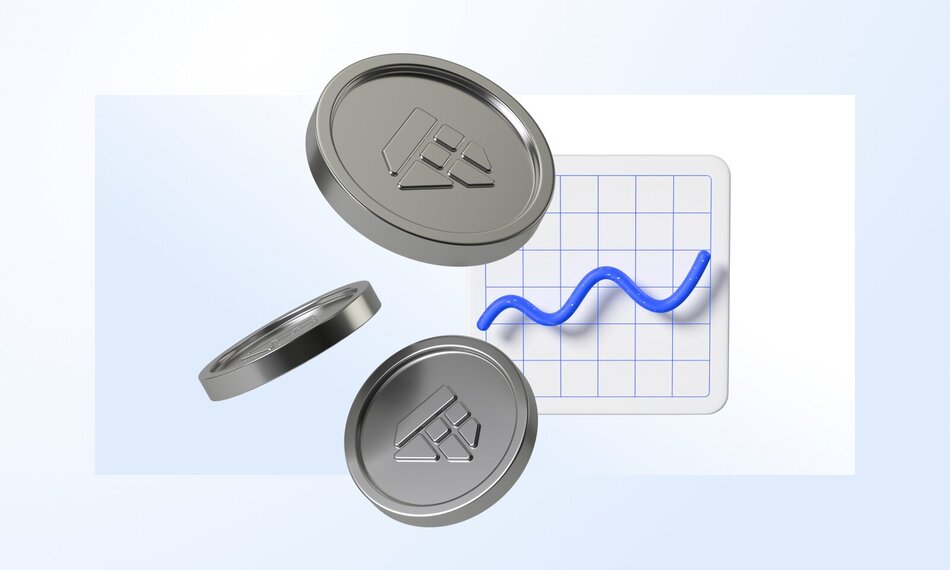When it comes to real estate investments, depreciation can be a valuable tool for preserving your net income. While it won’t instantly put money in your pocket, it helps real estate investors recoup their costs in a tax-advantaged way. Those new to the real estate business need to understand depreciation and how to use it to maximize their earning potential over time.
Our guide explains what depreciation is, how it’s used in real estate, and its tax advantages.
Defining depreciation
Depreciation is an accounting method businesses use to write off the cost of a physical asset over its useful lifespan rather than in the initial purchase year. As a result, they can deduct part of their investment costs annually and receive tax breaks on those amounts.
Depreciation applies to tangible assets like real estate, machinery, or business equipment. It represents an asset’s useful life and how its use over time impacts its value.
So why would you use depreciation? New assets are typically worth more than their aged counterparts. Depreciation accounts for wear and tear from usage and external factors such as inflation and newly released product models.
When a business buys an asset, like property, it can write off the expense all in one year or over a period of time. Choosing the latter preserves that year’s net income while allowing the business to expense a portion of the cost each year.
Arrived makes it easier to take advantage of depreciation benefits without the responsibilities of property management.
Using depreciation in real estate
Real estate depreciation delivers tax benefits for property owners. It can be applied to commercial, single, and multi-family real estate. Landowners can lower their overall tax burden by claiming rental property depreciation since an investment property’s depreciation reduces their total taxable income. In turn, owners maintain more cash flow for other investments or expenses.
When calculating the amount of depreciation for real estate, owners use a depreciation schedule that assigns a certain percentage of the purchase price each year until all costs have been fully depreciated or until it reaches the end of its lifespan. For real estate tax purposes, the Internal Revenue Service (IRS) has standardized the useable life of property at 27.5 years.
However, since land isn’t a depreciable asset (more on that below), property owners do need to deduct its value from its cost basis.
What depreciation method is best?
There are two primary strategies for depreciating physical assets:
- Straight-line depreciation is the most common method. It involves taking a fixed amount from the cost basis of an asset each year until it’s entirely written off. It’s easy to use because you expense the same amount each time.
- Accelerated depreciation accelerates the deduction process by allowing you to deduct more in the early years of ownership. For example, using the declining balance method, the owner decreases the asset’s value using its straight-line depreciation percentage with respect to its remaining depreciable amount. Other accelerated options include the double-declining balance method and the sum-of-the-years’ digits (SYD) method.
Calculating depreciation
To calculate straight-line depreciation, you must know the asset’s cost basis, expected useful life, and the “salvage” value.
The cost basis is the total cost of the asset, including its purchase price and any associated costs, such as installation or legal fees.
The expected useful life is the period the asset is expected to be used. In real estate, the IRS specifies up to 27.5 years.
Salvage value is the estimated amount the asset can be sold for at the end of its useful life.
Using these three factors, you subtract the salvage value from the cost basis and divide that number by its expected useful life.
The accelerated depreciation calculations get more complicated as they incorporate factors like maintenance costs over time, the asset’s frequency of use, or the use of weighted percentages.
A certified public accountant (CPA) can help you determine the depreciation method that will work best for your business.
How depreciation is handled on Arrived
Arrived makes it easy to ensure this depreciation benefit is seamlessly passed on to investors, lowering the overall tax burden for investors. Arrived handles all aspects of depreciation for its properties, simplifying the process and maximizing tax savings.
Investors receive these benefits through the net taxable income reported on their 1099-DIV form, which Arrived provides annually. While the form doesn't specifically detail the amount of depreciation, it reflects the impact on reduced taxable income. Additionally, portions of distributions may be classified as non-dividend distributions, considered a return of principal, and not subject to taxes at the time of payment.
By simplifying depreciation and structuring investments for optimal tax efficiency, Arrived helps investors focus on growing their wealth. Ready to take advantage of these benefits? Start investing today on Arrived.
Depreciation and the IRS
The IRS has specific rules on how and when to claim depreciation. See the IRS’s Publication 946, which provides detailed instructions for calculating and claiming depreciation deductions.
At the end of each accounting year, you must report your depreciation deductions on your tax return.
For real estate, to take a depreciation deduction, the property must:
- Be one you own
- Be used in your business or an income-producing activity
- Must have a determinable useful life
- Will last more than one year
Real estate often fits the bill, especially if you’re into real estate investing and leasing properties to generate income, as with a vacation rental business. You can have a mortgage on the property and still qualify for depreciation. However, suppose you buy real estate as a fix-and-flip project. In that case, the asset doesn’t qualify because you likely will offload it in under a year, and it’s not leased to a tenant while you own it.
The IRS uses a modified accelerated cost recovery system (MACRS) to determine depreciation deductions. It allows the owner to deduct more in the early years of an asset’s life and less later. Under MACRS, there are two depreciation systems.
Real estate usually falls under the IRS’ “General Depreciation System” or GDS, but your specific use case may require the Alternative Depreciation System (ADS), which extends the number of years an asset is depreciated. That’s why it’s a good idea to consult the IRS Section 179 publication or a tax professional.
Under the GDS, residential rental property is defined as 80% or more of its gross rental income coming from dwelling units, not including hotels, motels, or transient properties. It uses the declining balance method, which applies the depreciation rate against the non-depreciated balance.
These properties have a useful life of 27.5 years. That means the owner can deduct its cost basis for over 27 years.
The ins and outs of claiming depreciation
It’s important to remember that you must adhere strictly to the IRS’s rules for claiming real estate deductions. Consult a tax professional with questions or concerns about depreciating a rental property.
Your depreciation clock starts when you place the property in service for your business. Let’s look at this from a real estate investor’s point of view. If you buy a home in January with plans to lease it as a rental but spend three months upgrading and renovating the property, those three months don’t count. It’s only when you place the property on the market on April 1 that the property enters service for your rental business that depreciation starts.
Depreciation stops when you:
- Remove the property from service (as in, stop leasing it)
- You have fully recovered its cost
- At the end of its allowable life, the 27.5 years benchmark
What about if you renovate and repair the property before putting it in service, changing its market value? IRS has specific rules about that, too. Any improvements to the property within the first year of being placed in service can be deducted in that first year. After that, any repairs or improvements must be treated as a separate depreciable item.
What if you only part-time rent your vacation home?
Even though the property is not always rented out, if its primary purpose is to generate income, you can apply for a tax deduction. However, you must divide up your rental expenses and personal expenses accordingly. Excellent record-keeping for the rental use of the home is a must.
Any rental property in service for less than 15 days isn’t considered to have generated any rental income and won’t qualify for a depreciation deduction.
What can’t be depreciated?
You cannot depreciate the cost of land, as it does not wear out or get used up over time, as a home or building would. You cannot depreciate any improvements you make to the land on the property that adds to its value, such as landscaping, a swimming pool, or new fencing. However, you can claim these costs on your taxes in other ways.
Other assets that can’t depreciate are intangible assets, like stocks and bonds, collectibles, or personal property. So, the home you own as a primary residence can’t be depreciated.
What about depreciation recapture?
Depreciation recapture comes up when it’s time to sell your asset. When you profit from a home sale on a property you’ve claimed depreciation for, the IRS sees that as lowering your past income tax burden. The IRS requires you to “pay back” on the income by reporting profit as ordinary income, which is taxed at a higher rate than capital gains taxes. In this way, they “recapture” their depreciation loss.
You can avoid depreciation recapture through a 1031 exchange, which is also known as a like-kind exchange.
Tax advantages of depreciation
The primary advantage of claiming depreciation on real estate investments is that it reduces your tax bill in that year. Because this expense is deductible from the total rent collected, just like operating expenses like property management fees, landlords can keep more money in their pockets and enjoy more significant savings over time.
Closing thoughts on depreciation
Rental property owners should take the time to understand how depreciation works to reduce their tax liability and maximize their earnings potential. By taking advantage of this accounting method, they can lower their tax burden and enjoy the benefits of real estate investing for years.
If you are concerned about which suits you, speak with a tax accountant or financial advisor. Our breakdown is intended to inform, not to serve as tax or financial advice.
Start harnessing the tax benefits of depreciation and easily invest in real estate on Arrived. We handle all the operational work so investors can focus on their portfolios—not the headaches. Browse available properties and unlock the benefits of real estate investing and its rental income and appreciation potential.









